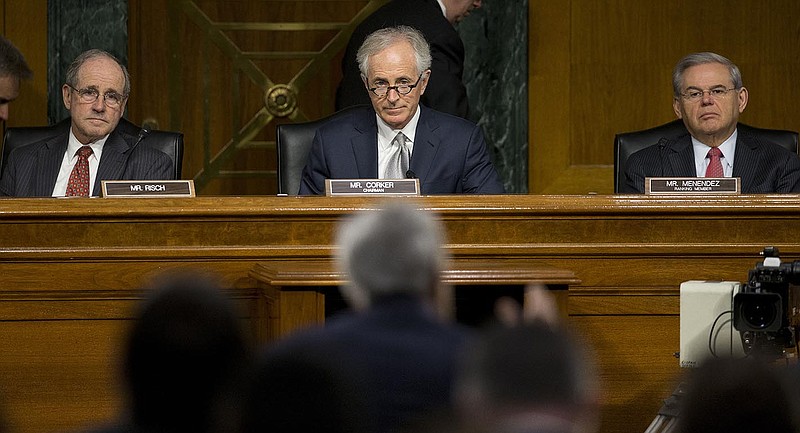At the current rate, the Islamic State, or ISIS, may be defeated around 2077.
The United States has decided to send 200 more troops to Iraq and eight Apache helicopters to assist in what seems like a frustratingly incremental approach to defeat the barbaric Islamic State.
Granted, the battle to rid the world of the terrorist scourge in Syria and Iraq has seen some positive upticks in recent months, so a strike-while-the-iron-is-hot strategy seems well-placed.
Even Secretary of Defense Ashton Carter seems to be on board.
"We've got to get these guys beaten and as soon as possible," he said. "We're looking for opportunities to do more."
The problem is President Barack Obama's constant dithering about such issues. It's no secret he abhors all U.S. involvement in the Middle East and wishes he could make it all go away. But he surely knows that 1) without U.S. help, the defeat may not happen, and 2) if the U.S. presence in the region is not felt, another power - likely one led by Vladimir Putin - will be only too happy to fill the vacuum.
As long as the Islamic State has been in power, the options for assisting those who are dedicatedly down for the struggle against the terrorist body - so-called moderate rebels in Syria and the Kurds in Iraq - have been on the table. But both received only small parcels of help from the U.S. - the Syrian rebels humanitarian aid and some military gear and the Kurds some obsolete rifles and a few dozen armored vehicles.
Obama compounded the problem in Syria when he made his infamous 2012 "red-line" declaration over Syrian President Bashar al-Assad's threat to use chemical weapons on his people and then didn't honor it when the Syrian leader used the weapons. Then, Putin swept in with bombing support for Assad against the moderate rebels who were attempting to stop the Islamic State, and the game changed there.
With the Kurds, Obama apparently feels bound to stick to what in his mind is a "One Iraq" policy. That is, if he arms one sect in the country, he risks upsetting the current Iraqi Army that is attempting to retake territory plundered by the Islamic State, or making the Kurds so strong they might make a play for disputed territory. But the "One Iraq" policy more or less vanished with the territory grab of the Islamic State.
Thus, progress has been slow but measurable.
* The Pentagon estimates the Islamic State has lost 40 percent of its territory in Syria and Iraq and 25,000 fighters from their 2014 peaks.
* American officials believe the Islamic State's oil revenues have been cut by about a third by the targeting of oil fields, refineries and tanker trucks, according to The New York Times.
* The ancient city of Palmyra in Syria recently changed hands from the Islamic State to Russian-backed Syrian government forces, and anti-Islamic State coalition fighters now have their eyes on Mosul in Iraq and Raqqa in Syria.
Yet, the progress made over territory and wealth hasn't seemed to dim the group's interest in terror attacks in cities such as Paris and Brussels. And the group has spread in Libya and Afghanistan.
Why not, then, increase strategic U.S. air strikes on the Islamic State in Iraq, better arm both the Kurds and the Syrian rebels and send enough U.S. troops to Iraq not to fight but to work alongside those who are battling for primacy of their land?
A recent poll of 16 Middle East countries by ASDA'A Burson-Marsteller also indicates Arab men and women - eight in 10 young adults - are turning against the brutal regime. That's up from only six in 10 a year ago.
Whatever success those measures may have, U.S. Sen. Bob Corker, R-Tenn., said the overall struggle, based on recent reports given to his Senate Foreign Relations Committee, will be a long one.
He said the Islamic State's encrypted platforms for communication have made their activities difficult to monitor, so information sharing among countries is more important than ever before. The lack of such sharing has been particularly problematic in Europe and, he said, "for a period of time, in our own country, the pendulum was swinging in the wrong direction relative to this issue."
Indeed, "this is not something that's going to be short term," Corker said. "The root cause of what is happening in the Middle East is going to take decades to overcome."
In the meantime, with Islamic State group's popularity falling in the Middle East and small military steps achieving small gains, it's time to employ bigger steps for bigger gains and a quicker end to this murderous regime.
